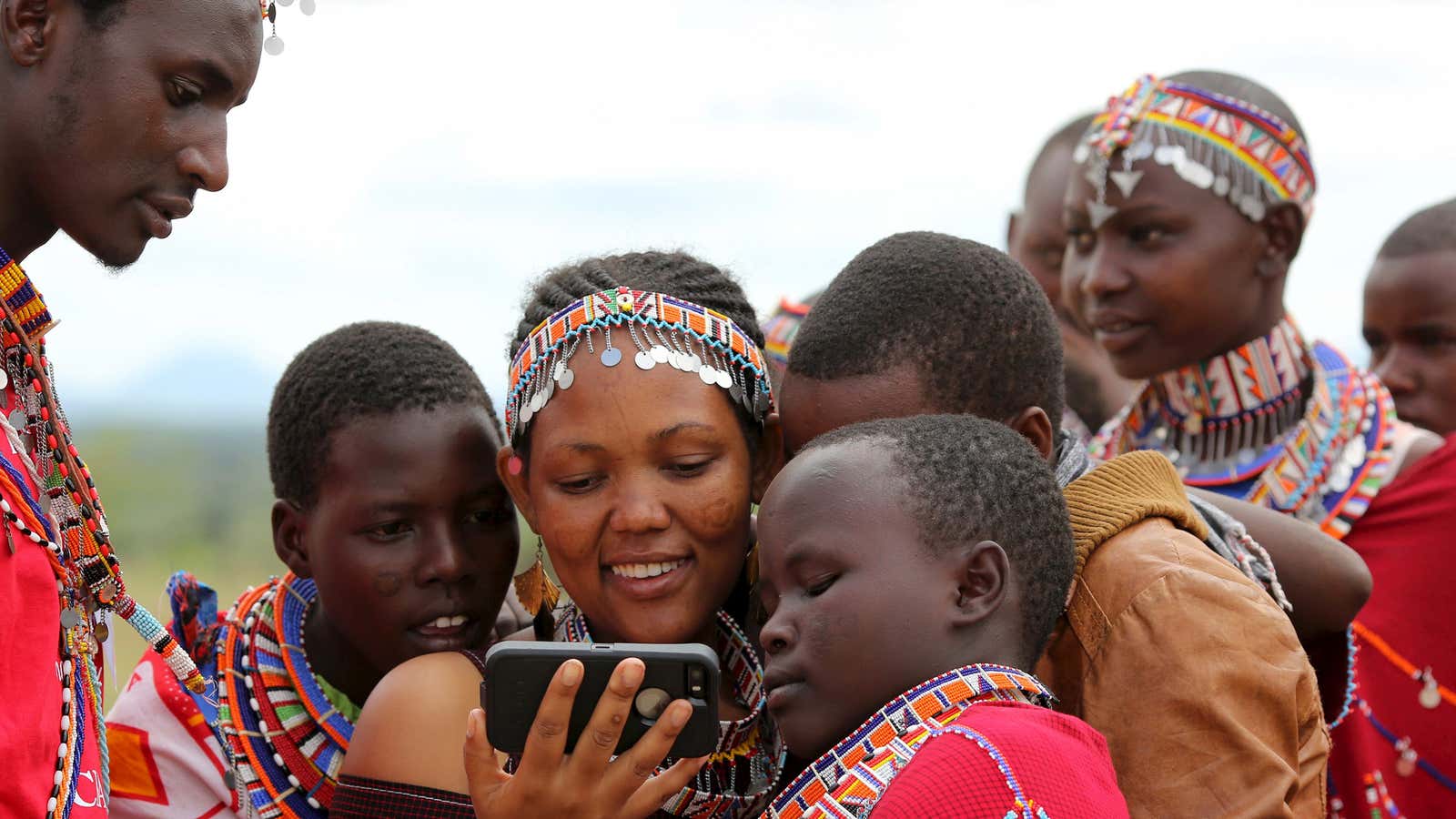Kenya is an undisputed global leader when it comes to mobile money services. In 2007, the telecom operator Safaricom launched its mobile money service M-Pesa as a simple way to text small payments between users. A decade later, M-Pesa has become the world’s most successful money transfer service.
The platform enables almost 30 million people to pay for crucial services, access loans, and send money all over the world. M-Pesa is also a leading revenue generator for Kenya’s government and has spread to 10 countries, including Albania, Egypt, Romania, Lesotho, and Tanzania.
Still, in Kenya the downside has always been the inconvenience of sending money across mobile networks. Consumers often complain that the process is tedious and expensive. Mobile operators such as Airtel have also complained that Safaricom’s dominance in the market undermines their business, and called for a leveling of the playing field.
But all this could be in the past if new interoperability regulations are adopted among service providers in the coming months. Officials from both Kenya’s ICT ministry and the Communications Authority of Kenya have been pushing for the adoption of this regulation by July—allowing users to send money across networks at no additional cost. On Wednesday (May 10), at the company’s annual conference, Safaricom CEO Bob Collymore spoke in positive terms about the regulations, saying that the company “strongly” supported interoperability and was “committed to delivering that within the next three months.”
Experts have long viewed mobile interoperability in Kenya as inevitable. The interoperability measures will drive financial inclusion among subscribers. Tanzania, which set a precedent as the first African country to adopt full mobile money compatibility among its networks, has reported increased transactions among users. In Kenya, the measures are meant to also create fair competition and allow seamless interaction among the six mobile money transfer platforms: M-Pesa, Airtel Money, Orange Money, Equitel, Mobikash, and Tangaza.
Beyond that, interoperability in Kenya will allow consumers the ability to access different services in case of technical hitches. For instance, in late April, Safaricom’s network experienced a countrywide outage affecting voice calls, data, and M-Pesa services. Even though it was restored hours later, the loss of revenue and inconvenience caused an uproar.
